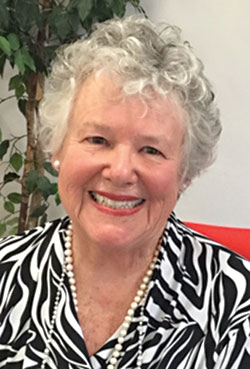
Part 1 • Part 2 • Part 3 • Part 4
“Bubba,” as Bill Clinton was known back in Arkansas, and his ambitious wife, Hillary Clinton, took over the White House in 1992. He was both a personable and handsome man and had a certain charisma that attracted people to him like magnet sucks iron ore to its breast. He was also a very skilled politician who could work with both parties in a non- partisan spirit, something lacking today.
The great distraction from the very beginning of Clinton’s term in office and finally exploding into full blown scandals was what the media called a series of “bimbo eruptions.” I lost count of all the ladies that claimed he had either taken advantage of them or had had an affair with him.
The worst scandal for the nation to endure was the Monica Lewinsky affair. She was a young White House intern that had fallen under his charms and continued a steamy relationship with him for some time before her infamous blue dress came into evidence of his behavior. His unseemly behavior in the Oval Office shocked many Americans, including me. We were not amused. One would like to be proud of and look up to a president, if at all possible.
Then the usual, denials came and more lies … “I did not have sexual relations with that woman,” said with the incriminating raised eyebrows as he claimed his innocence. Lying to us is one thing, but he even lied to U.S. District Judge Susan Weber Wright and was fined more than $90,000 for doing so.
Still most Americans loved Bill Clinton. His wife was another matter. For some reason I saw “Lady Macbeth” whenever she spoke. It seemed to me that she would do most anything to become the first woman president. She may make it even yet, for she still has troops of women who adore her.
I had personal reason to dislike her. Her staff called the Southside Sentinel offering to provide me with my own personal copy of “Mrs. Clinton’s talking points” each week so that I could use them to write an op-ed in the Sentinel. When I returned her call I learned she was creating an army of women journalists across the nation that would receive her ideas for “distribution.”
I refused her kind offer. I don’t use anyone’s “talking points.” In 1995 I already knew that she was preparing a run for the presidency one day and using White House staff to help prepare the way.
When Clinton lost the democrat majority in the House in the ‘94 election, he worked well with Republican Newt Gingrich, who was speaker of the House back in the days when Republicans could actually elect a speaker. Together they passed tax cuts and reformed welfare. We have not seen a president and the opposite party work so well together since.
George W. Bush, son of the first George H.W. Bush, was elected president in 2000. I think the country was relieved to see a modest person in a solid marriage to a wife who was content to be a first lady and mother to her children with no political aspirations of her own. We certainly needed a breather after the Clinton years.
Bush served two terms in office. He was credited for getting drug costs down under Medicare. The destruction of the twin towers on 9/11, the greatest attack on American soil since Pearl Harbor was bombed in 1941, caused the nation to go into shock and spread fear across the land. Bush overreacted and sent troops into Afghanistan and Iraq and once again America was mired in war for many years. Lesson learned once again that we should have learned in Vietnam: Go slow to war, do nothing in a state of rage, and always have a withdrawal plan when it’s time to make peace.
At the end of two terms with Bush, Barack Hussein Obama became president. It was a historical election as it was the first time in American history a Black man was elected president.
Obama promised to fundamentally change America. He did. And his vice president, Joe Biden, and longtime politician, who in 2020 was elected president, continued the campaign to fundamentally change the nation.
Our nation cries out to be color blind but it seemed to me racial issues became even more to the forefront during the Obama years. Our goal as a homogeneous people should be to follow the guidelines of Dr. Martin Luther King Jr. that so famously stated that …
“they will not be judged by the color of their skin but by the content of their character.”
Thus we are reminded once again that behavior, how we treat our fellow man, is everything. Behavior not mere words, is always the “proof of the pudding.”
And then there was Trump.
I have seen many presidents since my birth in 1941 and witnessed many different kinds of behaviors in the White House, but nothing prepared me for “the Donald.”
(See the Nov. 16 print edition of the Southside Sentinel for this series’ conclusion.)


